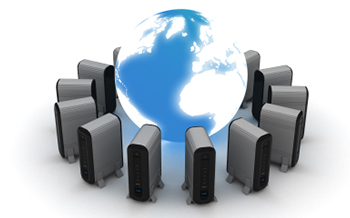
Small business owners are often worried about data loss. Rightly so, because data loss has the potential to wipe out a business. We have identified the most common forms of data loss so you can see how they fit into your business and assess the risks related to each of these pitfalls.
1. Human Error - Human error - by way of unintentional data deletion, modification, and overwrites - has become much more prevalent in recent years. Much of this is the result of carelessly managed virtualization technology. While virtualization and cloud computing have enabled improved business continuity planning for many businesses and organizations, humans must still instruct this technology how to perform. The complexity of these systems often presents a learning curve that can involve quite a bit of trial and error. For instance, a support engineer may accidentally overwrite the backup when they forget to power off the replication software prior to formatting volumes on the primary site. They will be sure to never do that ever again, but preventing it from happening in the first place would be more ideal.
2. File Corruption - Unintended changes to data can occur during writing, reading, storage, transmission and processing - making the data within the file inaccessible. Software failure is a leading cause of data loss and is typically the result of bugs in the code. Viruses and malware can also lead to individual data files being deleted and hard drive partitions being damaged or erased.
3. Hardware Failure - Storage devices may be at risk due to age, or they may fall victim to irreparable hard-disk failure. Viruses and hackers can also potentially shut down a hard drive by inserting undeletable malicious code and huge files via open, unprotected ports. If these malicious programs cannot be deleted, the entire hard drive may have to be reformatted, wiping out all the data.
4. Catastrophic Events/Theft - The threat of catastrophic events such as fire, flooding, lightning and power failure is always a concern. Such events can wipe out data in a millisecond with no warning. Theft is also a data loss risk that companies must address. While advances in technology like anytime/anywhere connectivity, portability and the communication/information sharing capabilities of social media and crowdsourcing have revolutionized business - the risk for theft is even greater due to this increased accessibility. More people are doing daily business on their laptop, iPad and mobile phones. They are also carrying around portable media like thumb drives, USB sticks and CDs. Physical theft of any of these devices can spell big trouble.
Data loss is as unique as the various sources from which it comes. The key is to identify the areas in which your business is weak and work towards a mitigation plan for each one of them. An MSP can act as a trusted partner in such cases, holding your hand through the process of safeguarding your data.

Comments
Post a Comment